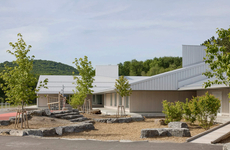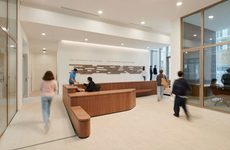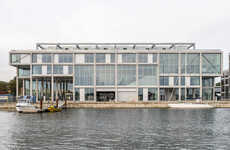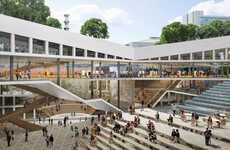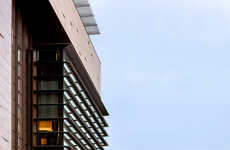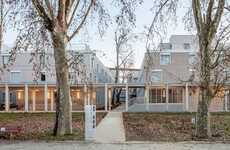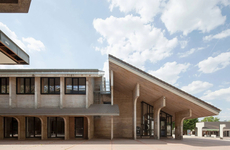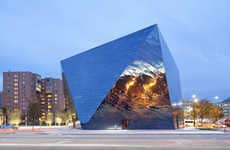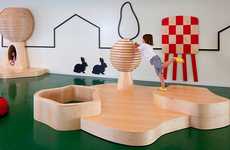
OMA's École Centrale Engineering School is Award-Winning
Jordy E — October 19, 2012 — Art & Design
OMA's École Centrale engineering school is the official winner of Paris' Saclay competition. Four architectural firms entered the event, bidding for the pedagogic space that will serve as home to some of France's brightest students.
Clément Blanchet, the director of OMA, oversaw the development of this transparent school structure. In contrast to normative laboratories, this École Centrale structure serves to undo linearity by eliminating the presence of classrooms separated by long ominous corridors.
In place of these corridors is Blanchet's open concept. The glass windows and wide white quarters allow lessons to be viewed by onlookers, promoting inclusive and collective learning. Collaboration is certainly essential to this vision, taking notes from urbanism and a modern aesthetic.
Clément Blanchet, the director of OMA, oversaw the development of this transparent school structure. In contrast to normative laboratories, this École Centrale structure serves to undo linearity by eliminating the presence of classrooms separated by long ominous corridors.
In place of these corridors is Blanchet's open concept. The glass windows and wide white quarters allow lessons to be viewed by onlookers, promoting inclusive and collective learning. Collaboration is certainly essential to this vision, taking notes from urbanism and a modern aesthetic.
Trend Themes
1. Transparent Education - The trend of integrating transparent design elements in educational spaces to promote inclusive and collective learning.
2. Open Concept Learning - The trend of replacing traditional classrooms with open, collaborative spaces for students to learn and collaborate.
3. Disruptive Architectural Design - The trend of using innovative architectural design to transform educational spaces and enhance the learning experience.
Industry Implications
1. Education - The education industry can innovate by incorporating transparent design elements and open concept learning spaces in schools and universities.
2. Architecture - The architecture industry can explore disruptive design strategies to create innovative learning environments and transform traditional classroom structures.
3. Urban Development - The urban development industry can contribute by applying urbanism principles to educational spaces, promoting collaborative learning and inclusive environments.
1.4
Score
Popularity
Activity
Freshness

